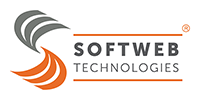The nature of the manufacturing industry constantly evolving which necessitates the integration of innovative technologies to ensure long-term viability and sustainability. Technology-driven AI-based ERP solutions, equipped with the appropriate tools to support discrete manufacturing operations, are leading this evolution.
Here we delve into the varied advantages offered by uniquely designed ERP software, deeply influencing the modern discrete manufacturing environment.
What Is Discrete Manufacturing?
According to Wikipedia Discrete Manufacturing companies make physical products that go directly to the businesses and consumers and assemblies that are used by other manufacturers. From smartphones to aeroplanes or automobiles to children’s toys, all are considered to be discrete manufacturing products.
Achieving Operational Excellence with ERP for Discrete Manufacturing Industry
Enhanced Workflow Optimization for Increased Production Efficiency
Effective workflow optimization lies at the core of operational efficiency and excellence in manufacturing. The right discrete manufacturing ERP software acts as the foundational pillar for superiority in operation within the manufacturing sector. The Best ERP Solution integrates mission-critical processes such as production planning, scheduling, and quality control, the system ensures seamless cohesion and coordination across various operational levels. Real-time insights smooth the progress of quick decision-making, reducing downtime and enhancing overall productivity.
ERP for Discrete Manufacturing with Dynamic Production Planning
In an era of constant change, the ability to adapt swiftly is crucial for businesses to survive. ERP solutions provide discrete manufacturers with dynamic production planning module essential for flexibility to navigate continuously the ever-evolving market trends and meet evolving customer demands. Real-time data-driven decision-making is key to fostering an agile manufacturing environment, enabling proactive responses to industry shifts and prompt adjustments to production lines to align with emerging trends.
Supply Chain Optimization for Timely Procurement
Manufacturing ERP solutions extend their advantages to supply chain optimization, offering a comprehensive view of the entire supply network. From raw material procurement to final product delivery, ERP for Logistics Management enhances demand forecasting accuracy, enabling manufacturers to align production levels with market needs efficiently. Additionally, ERP software facilitates robust collaboration with suppliers, fostering a streamlined and responsive supply chain that adapts dynamically to demand changes.
Finance & Accounts
ERP for Finance & Accounts Management in discrete manufacturing streamlines financial processes by integrating all accounting functions into a unified system. This approach ensures real-time tracking of costs, revenues, and financial performance, improving decision-making and operational efficiency. With ERP for discrete manufacturing, businesses can manage budgets, control expenditures, and comply with financial regulations seamlessly. It enhances accuracy in financial reporting, reduces manual errors, and provides comprehensive insights into financial health, empowering manufacturers to optimize their financial strategies.
Bill of Materials (BOM) Management
ERP systems help manufacturers manage complex BOMs that detail every component and material required to produce a finished product. This ensures accurate cost estimation and smooth production flow.
Production Scheduling
ERP automates production planning or scheduling, allowing manufacturers to plan jobs based on resource availability, deadlines, and customer demand. This minimizes downtime and improves production efficiency.
Quality Control
Quality management tools within ERP systems help track product quality at each production stage, ensuring that finished goods meet the required standards. This reduces defects and boosts customer satisfaction.
Material Requirements Planning (MRP)
ERP helps manufacturers predict material requirements based on current inventory levels and production plans, ensuring that the necessary raw materials are available for upcoming production runs.
Advantages of ERP
Precision Inventory Management
Effective inventory management is critical for manufacturing success. ERP solutions provide a centralized platform for vigilant monitoring and control of inventory levels, ensuring optimal stock levels and preventing both overstocking and stockouts. This balanced approach contributes significantly to cost savings and enhances customer satisfaction through timely and accurate deliveries. Moreover, ERP solutions which come with the added advantage of vendor alignment, lead to zero lead time in the order and processing of raw material requisition and purchase. This helps in Just-in-time inventory management, helping to free up working capital amount.
Data-Driven Decision-Making for Optimized Production
ERP systems empower data-driven decision-making by compiling and analyzing data from diverse departments. Informed decision-making, guided by insightful analytics, facilitates strategic optimization of production processes, addressing inefficiencies and driving continuous improvement.
Compliance and Quality Assurance
The manufacturing industry is highly regulated, so adhering to compliance standards becomes essential to grow. ERP solutions powered with AI for enhanced digital transformation come equipped with features ensuring regulatory compliance and quality assurance, lowering risks and enhancing brand reputation with quality management.
How to Choose the Right ERP Solution for Discrete Manufacturing?
-
Identify Your Business Needs
Before selecting an ERP solution, assess your specific manufacturing needs, such as production scheduling, inventory management, and quality control, to ensure the ERP addresses these areas.
-
Evaluate Features and Functionality
Choose an ERP system that offers the key features you require, such as BOM management, MRP, and supply chain visibility, to streamline operations effectively.
-
Consider Scalability and Flexibility
Ensure that the ERP system can grow with your business and adapt to changing requirements, so you don’t outgrow the system too quickly.
-
Assess Vendor Reputation and Support
Research ERP vendors carefully. Look for a provider with a strong track record in the manufacturing industry and robust customer support to ensure smooth implementation and long-term success.
Embrace the Future with Innovation in Manufacturing ERP
Organisations still wondering why to adopt digital transformation, this reason should be enough to accept a solution which thinks beyond ERP. The undeniable benefits of ERP solutions for discrete manufacturers, from streamlining operations to optimizing the supply chain and enabling data-driven decision-making, make them indispensable for staying competitive in today’s rapidly evolving landscape. The businesses which expect to thrive in the future need to embrace and adapt to ERP solutions ensuring operational excellence in manufacturing.


